[vc_row][vc_column][vc_single_image image=”949″ img_size=”full” alignment=”center”][vc_custom_heading text=”“A Piece of My Mind”” font_container=”tag:h1|font_size:50px|text_align:center|color:%232633ef” google_fonts=”font_family:Bitter%3Aregular%2Citalic%2C700|font_style:700%20bold%20regular%3A700%3Anormal”][vc_custom_heading text=”December 2021 Newsletter” font_container=”tag:h1|font_size:30px|text_align:center|color:%232633ef” google_fonts=”font_family:Bitter%3Aregular%2Citalic%2C700″][/vc_column][/vc_row][vc_row][vc_column width=”2/3″][vc_column_text]
Advancing Christian Faith and Values,
Defending Religious Liberty for All,
Supporting Civility and the Common Good
through Preaching, Teaching, Writing, Activism and Reasoned Conversations
www.donaldshoemakerministries.com[/vc_column_text][/vc_column][vc_column width=”1/3″][vc_single_image image=”1304″ img_size=”full” alignment=”center”][/vc_column][/vc_row][vc_row css=”.vc_custom_1598373738095{border-radius: 3px !important;}”][vc_column][vc_column_text]
“Hark! The Herald Angels Sing”
 Christ, by highest Heav’n adored;
Christ, by highest Heav’n adored;
Christ the everlasting Lord;
Late in time, behold Him come,
Offspring of a virgin’s womb.
Veiled in flesh the Godhead see;
Hail th’incarnate Deity,
Pleased as man with us to dwell,
Jesus our Emmanuel.
Hark! The herald angels sing,
“Glory to the newborn king!”
Among the best known and loved Christmas carols—certainly one of the best Christian hymns ever written—it was composed by Charles Wesley in 1739. The familiar tune was composed by Felix Mendelssohn in 1740.[/vc_column_text][vc_row_inner][vc_column_inner][vc_column_text]
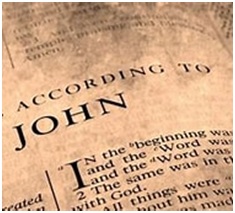 A Less-familiar Christmas Scripture
A Less-familiar Christmas Scripture
Mary, Joseph and Baby Jesus. King Herod and the “Wise Men.” The angels and shepherds—The Gospels of Matthew and Luke give us the familiar Christmas themes we love to recall, recite and sing about.
The Gospel of Mark skips the first 30 years of Jesus’ life and starts with Jesus hitting the ground running—being baptized and starting his ministry.
The Gospel of John, likely written more than 80 years after Jesus’ birth, takes time to reflect upon and “theologize” about Jesus. Just who was this person?
Simply put, the Christmas Message in John’s Gospel is “In Jesus, God Became One of Us, that We Might Know Him and Become His Children.”
The Gospel of John is written to ignite in us a faith that affirms the same truths about Jesus that John’s Prologue (1:1-18) does. “Now Jesus did many other signs in the presence of the disciples, which are not written in this book; but these are written so that you may believe that Jesus is the Christ, the Son of God, and that by believing you may have life in his name” (John 20:30-31).
What key answers does John give us to the question, “Who is Jesus?”
In the beginning was the Word, and the Word was with God, and the Word was God. He was in the beginning with God. All things were made through him, and without him was not any thing made that was made. In him was life, and the life was the light of men. (John 1:1-4)
Let’s start in verse one with the rather unusual statement that Jesus was “the Word.” A strange title for us but not novel at all to thinkers in New Testament times, “Word” conveys ideas such as “communication, disclosure, announcement, reason.” Point: Jesus is (and gives) the Truth of God to us.
Second, Jesus (God’s Word to us) was “in the beginning.” What “beginning” the author has in mind, I’m not sure. The same “beginning” as in Genesis 1:1 (“In the beginning God created the heavens and the earth.”)? Perhaps. It’s best to be cautious and not assign a time to “the beginning.”
Point: there never was a “time” when the Word “was not.” Each Christmas season we start the story of Jesus with his birth in Bethlehem. That’s not wrong, but it must not conceal something more ultimate: Jesus is “from the beginning.” He does not have his origin in a manger or in Mary’s womb.
Third, Jesus was with God “from the beginning.” This stresses intimacy.
The point to know is: Jesus was “there” with God in (hence, “since”) the very beginning. If anyone ought to know God perfectly, it would be Jesus.
Fourth, Jesus himself “is” God. This sounds contradictory, but it is not. How could Jesus be “with” God and also “be God?” The historical answer is still the best one—God is “one” and yet God exists as “Father, Son and Holy Spirit.”
So, in three short phrases John begins his letter with a mountain of declarations about Jesus—his eternity, his presence with God the Father, and his essence as God (whatever God is, the Word is). If you want to know God, the best source is from the Word who was ever with God and is himself God (Hebrews 1:1-2).
Fifth, we learn the role of the Word in creation (verse three). “Through him all things were made.” And lest we miss or compromise the point, “…without him nothing was made that has been made.” Followers of Jesus should be very creation-affirming. Spirituality is not disengagement from what is made (if we do that, we are casting aspersion on its Creator); true spirituality celebrates creation and thrives in it.
The true light, which gives light to everyone, was coming into the world. He was in the world, and the world was made through him, yet the world did not know him. He came to his own, and his own people did not receive him. But to all who did receive him, who believed in his name, he gave the right to become children of God… (John 1:9-12)
In verse nine, we learn our sixth key answer to “who is Jesus?” Jesus is light. Actually, he is “life” and that “life” is “light” to us all. His coming to earth brightens up the world. Sadly, many choose to reject that light. But—Good News!—all who receive that light (in other words, all who believe in him) become children of God. The whole Gospel of John was written so we might read and believe, and become children of God.
And the Word became flesh and dwelt among us, and we have seen his glory, glory as of the only Son from the Father, full of grace and truth. (John 1:14)
Seventh, the “Word” that was from the beginning with God and who is himself God, became human (“flesh” is both literally true and much more than what we think of as “flesh”). He became human in every way. He was “flesh, blood and bone, muscle and mind” like us (not merely a divine spirit inside a body).
Christian thinking, based especially on the Gospel of John, strongly confesses that Jesus was fully “flesh,” fully human. This is one of the most hopeful confessions I can think of. He walked our path, experienced our afflictions, was challenged by evil as we are. Yet he was sinless, assuring us that sin is not intrinsic to who we are. We can’t sin and say, “After all, I’m just human.”
Deny the “flesh” nature of Jesus and you have denied Jesus. Your thinking puts you outside the Christian camp. Nor should we diminish (without denying) Jesus’ full humanity. He didn’t walk an inch off the ground. He has been tested just like we are and thus he comes to us with understanding and grace.
Here’s a very practical application of Jesus’ real humanity. I strongly believe that pastors must be “flesh and blood” in close company with their people. We must strive for “incarnational ministry.” We are not to be larger-than-life figures on a screen, remote and out of reach, and above what afflicts others. This has great implications on how we “do church.” Technology has made remote worship possible during Covid and for other good reasons. But I’m happy to hear of trends away from overreliance on “remote worship” and back toward in-person fellowship and pastoral ministry.
No one has ever seen God; the only God, who is at the Father’s side, he has made him known. (John 1:18)
One more key answer to “who is Jesus?” is found in verse eighteen. While God is not directly visible, Jesus was. We can know him and thereby know God.
This little look at the Gospel of John’s “Christmas message” has just scratched the surface. I’m adding some more in-depth teachings below. Please take the “key points” to heart and celebrate Christmas in light of them.
What songs highlight the themes I’ve shared? Here are three:
Veiled in flesh the Godhead see; Hail th’incarnate Deity,
Pleased as man with us to dwell, Jesus our Emmanuel.
Hail the heaven-born Prince of Peace! Hail the Sun of Righteousness!
Light and life to all he brings, risen with healing in his wings.
Mild he laid his glory by, born that we no more may die.
– Charles Wesley, 1739
Of the Father’s love begotten, ere the worlds began to be,
He is Alpha and Omega, he the source, the ending he,
of the things that are, that have been, and that future years shall see…
– Marcus Aurelius Clemens Prudentius, 4th century
O Word of God incarnate, O Wisdom from on high,
O Truth unchanged, unchanging, O Light of our dark sky.
– William How, 1867
 Papyrus 66 may date as early as the early second century. It contains most of the Gospel of John. This page contains John 1:1-13 and part of verse 14.
Papyrus 66 may date as early as the early second century. It contains most of the Gospel of John. This page contains John 1:1-13 and part of verse 14.
[/vc_column_text][/vc_column_inner][/vc_row_inner][vc_row_inner][vc_column_inner][vc_column_text]
A Deeper Look at the Prologue of John’s Gospel (1:1-18)
The Prologue whets our palate with appetizers about what will be unfolded throughout this letter by the teachings and deeds of Jesus. The letter reaches its pinnacle in chapter 20, when Jesus presents himself to the “I won’t believe what I can’t see and feel” disciple Thomas. Upon seeing Jesus and being invited by Jesus to touch his wounds (from his crucifixion), Thomas exclaims “My Lord and my God!” In essence, Thomas confesses what the Prologue declares: Jesus is the Word which is God and which has become flesh.
Jesus sets forth the evangelistic goal of this Gospel with these words to Thomas: “Because you have seen me, you have believed; blessed are those who have not seen and yet have believed” (John 20:28-29). This is followed by John’s comment (quoted above) that his written record of Jesus intends to induce faith in his readers.
John 1:1 – “In the beginning…” (en archē) is identical to how Genesis 1:1 begins in the Greek scriptures used by first-century Christians. This may correlate the two “beginnings” but I’m not dogmatic on this.
“…was the Word” (ēn ho logos). This term logos is rich in Greek and Jewish thought. Jewish thought saw the “word” of God as the originator of creation (“By the word of the Lord the heavens were made” – Psalm 33:6). Here the word is active, not simply thoughtful. God’s speech launched his creation (Genesis 1:3). And in John 1:3 Jesus, the Word, creates all that is made. Several words unfold this term: “reason, revelation, expression, communication, disclosure” and more. It’s best to see John as using a term with familiar backgrounds but giving it a fulfillment unique to his letter. Oscar Cullmann traces the different uses of logos in the ancient world but insists, “we must ask especially to what extent Christianity introduced completely new elements and freshly interpreted the Logos concept…the one revelation of God in Jesus of Nazareth” thereby reforming how logos is to be understood. John is “proclaiming something radically new” regardless of what logos meant to contemporaries (“The Greeks spoke of the Logos without knowing him; they did not speak of the Logos who became flesh.”).
I find Robert Gundry quite cleaver as he ponders the trendy but artificial distinction that says Christianity is about a Person, not about propositions. To the slogan “Truth is personal, not propositional” (as though personal cancels out the propositional), he entertains the “naughty thought” of translating logos as “the Proposition” (unfolded in John’s discourses).
John 1:1 conveys three phrases that unfold who/what the logos is. In addition to his timeless existence prior to creation (the first phrase):
• “…and the Word was with God…” (kai ho logos ēn pros ton theon). In essence, the word was “face to face” with God in perfect harmony, thereby fully knowing what is to be known about God. We might say, “From the beginning God and his Word were constantly together.” No person or thing can convey the Father to us better than Jesus, his Word.
• “…and the Word was God” (kai theos ēn ho logos). The Word is both “with God” and “is God.” Cullmann insists, “We must allow this paradox of all Christianity to stand. The New Testament does not resolve it, but sets the two statements alongside each other…”
Notice what John doesn’t say: (1) he doesn’t say Jesus is “like” God, as many moderns express this relationship. John had the word theios (“God-like, divine”) available if he wanted to say this. (2) He doesn’t say Jesus is congruent with God (as if John had used two definite articles to say, “and the Word was the God” [kai ho logos ēn ho theos]), thereby creating an incompatible contradiction with “the Word was with God” and essentially affirming a Jesus-unitarianism. (3) He doesn’t say “the Word was a god” (kai ho logos ēn theos). The indefinite article “a” is completely unnecessary here and reveals a bias against identifying the Logos with God (in the late 1970’s I had lengthy discussions with Jehovah’s Witnesses on this point).
John says, “And GOD was the Word” (my emphasis, which is what I think the phrase intends). The positioning of “God” as a predicate nominative before the verb makes the word definite (even without the definite article) rather than qualitative or indefinite (“a god”). John’s confession of Jesus’ deity corresponds to the Apostle Paul’s in the “Praise Chorus” of Philippians 2:6-11 and in Colossians 1:15-17 and 2:9. In Paul’s (congregational?) song, Jesus is “in very nature” God (en morphē theou)—whatever we postulate about God is also true about Jesus.
John 1:14 – “The word became flesh and made his dwelling among us.” This confesses full humanity (“flesh” and all that conveys). Jesus is not a divine spirit in a human body (Cerintian Gnosticism) nor does he simply appear human (Docetism). He is fully human and a denial of this is a denial of Christianity. “Every spirit that acknowledges that Jesus Christ has come in the flesh is from God” (1 John 4:2) and “Many deceivers who do not acknowledge Jesus Christ as coming in the flesh have gone out into the world” (2 John 7).
John 1:18 – “No one has ever seen God, but God the One and Only (monogenēs theos), who is at the Father’s side, has made him known.” No mortal has seen God in his fullness as the Word has seen him, yet God gave glimpses of his glory (Exodus 33:18-23).
The reading “God the One and Only” differs from “the only begotten son” (ho monogenēs huios, cf. John 3:16) in the Greek manuscripts. I’m not a textual criticism expert. While the reading “only begotten God” seems preferable in textual support, I do think the common (KJV) rendering “son” fits John’s Prologue better. By either rendering, the key point is that Jesus, and only Jesus, is in the Father’s bosom and has plumbed the depths (exēgēsato, “exegeted”) of who the Father is.
Sources: G. R. Beasley-Murray, John (vol. 36 of Word Biblical Commentary), pp. 1-16; Oscar Cullmann, The Christology of the New Testament, pp. 149-69; Robert Gundry, Jesus the Word according to John the Sectarian, pp. xiii-xvii, 8-11; Bernard L. Ramm, An Evangelical Christology [recommended], pp. 37-52; Andreas J. Köstenberger, John (vol. 2 in Zondervan Illustrated Bible Background Commentary), pp. 5-13; Theological Dictionary of the New Testament, vol. 4, pp. 127-34; Donald Shoemaker, class lecture notes for “God, Christ, and Holy Spirit,” Biola University.[/vc_column_text][/vc_column_inner][/vc_row_inner][vc_row_inner][vc_column_inner][vc_column_text]
Religious Liberty Vigilance –
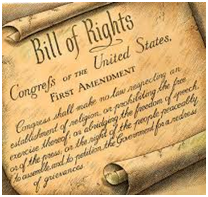 “I contemplate with sovereign reverence that act of the whole American people which declared that their legislature should ‘make no law respecting an establishment of religion, or prohibiting the free exercise thereof,’ thus building a wall of separation between Church & State.”
“I contemplate with sovereign reverence that act of the whole American people which declared that their legislature should ‘make no law respecting an establishment of religion, or prohibiting the free exercise thereof,’ thus building a wall of separation between Church & State.”
– Thomas Jefferson’s Letter to Danbury Baptists (1802)
I attended public schools in the 1960’s. They were good places of instruction. About that time, my church began a Christian elementary school. If I recall that era correctly, it wasn’t that many Christians thought the schools were doing or teaching bad things (evolution excepted) back then, but they wanted an educational experience permeated by Christian themes and values.
“Christian” education was never just about “add-ons,” like putting a cross on the wall or having a chapel service or a Bible class that would have “spiritual” words while regular classes had “secular” words to share.
No, spiritual instruction soaked into every aspect of education, from A to Z.
This meant that all teachers, counselors and coaches—yes, even the custodians—would embrace the faith that the school confessed. Teachers were expected to TRAIN students as well as TEACH them. All employees were to MODEL the faith before students as they had opportunity. Indeed, parents expected this when they laid out lots of cash for their children to attend. Christian schools didn’t look to the government for funding and certainly not for control of the Christian philosophy of education at work.
Well, along comes a form of government activism that won’t leave religious schools alone. It says that religious schools don’t have the right to hire and retain teachers and employees who confess and practice the faith. Only “ministerial” jobs are exempt. Presumably, other positions are “secular non-religious positions” even if the schools say they are not.
Examples of intrusions into religious liberty that require vigilance:
• Legislation that removes the right of religious institutions to set standards of belief and conduct for their employees (example: AB 569 [2017] in California that was vetoed by then-Gov. Jerry Brown).
• Legal challenges by workers at religious organizations who claim employment discrimination because they were dismissed over issues of belief or conduct.
• Government regulations or other edicts (even what bathroom signs must say) that limit the free exercise right of religious organizations to set standards of operation based on religious beliefs.
Christian citizens (and others who value religious liberty) must not take this lying down. And it’s not enough just to pray about it. Remember Nehemiah’s resolve: “We prayed to our God and posted a guard…to meet the threat”
– Nehemiah 4:9).
Jefferson’s metaphor of a “Wall of Separation between Church and State” was his way of explaining the intention of the First Amendment. That wall today needs more bricks at the top—not to keep the church from addressing the state, but to keep the state from intruding into the realm of the church.
 [/vc_column_text][vc_column_text]
[/vc_column_text][vc_column_text]
“In Hoc Anno Domini”
(From The Wall Street Journal. This editorial was written in 1949 by the late
Vermont Royster and has been published annually ever since.)
When Saul of Tarsus set out on his journey to Damascus the whole of the known world lay in bondage. There was one state, and it was Rome. There was one master for it all, and he was Tiberius Caesar.
Everywhere there was civil order, for the arm of the Roman law was long. Everywhere there was stability, in government and in society, for the centurions saw that it was so.
But everywhere there was something else, too. There was oppression—for those who were not the friends of Tiberius Caesar. There was the tax gatherer to take the grain from the fields and the flax from the spindle to feed the legions or to fill the hungry treasury from which divine Caesar gave largess to the people.
There was the impressor to find recruits for the circuses. There were executioners to quiet those whom the Emperor proscribed. What was a man for but to serve Caesar?
There was the persecution of men who dared think differently, who heard strange voices or read strange manuscripts. There was enslavement of men whose tribes came not from Rome, disdain for those who did not have the familiar visage.
And most of all, there was everywhere a contempt for human life. What, to the strong, was one man more or less in a crowded world?
Then, of a sudden, there was a light in the world, and a man from Galilee saying, “Render unto Caesar the things which are Caesar’s and unto God the things that are God’s.”
And the voice from Galilee, which would defy Caesar, offered a new Kingdom in which each man could walk upright and bow to none but his God. Inasmuch as ye have done it unto one of the least of these my brethren, ye have done it unto me. And he sent this gospel of the Kingdom of Man into the uttermost ends of the earth.
So the light came into the world and the men who lived in darkness were afraid, and they tried to lower a curtain so that man would still believe salvation lay with the leaders.
But it came to pass for a while in divers places that the truth did set man free, although the men of darkness were offended and they tried to put out the light. The voice said, “Haste ye. Walk while you have the light, lest darkness come upon you, for he that walketh in darkness knoweth not whither he goeth.”
Along the road to Damascus the light shone brightly. But afterward Paul of Tarsus, too, was sore afraid. He feared that other Caesars, other prophets, might one day persuade men that man was nothing save a servant unto them, that men might yield up their birthright from God for pottage and walk no more in freedom.
Then might it come to pass that darkness would settle again over the lands and there would be a burning of books and men would think only of what they should eat and what they should wear, and would give heed only to new Caesars and to false prophets.
Then might it come to pass that men would not look upward to see even a winter’s star in the East, and once more, there would be no light at all in the darkness.
And so Paul, the apostle of the Son of Man, spoke to his brethren, the Galatians, the words he would have us remember afterward in each of the years of his Lord:
“Stand fast therefore in the liberty wherewith Christ has made us free
and be not entangled again with the yoke of bondage.”[/vc_column_text][/vc_column_inner][/vc_row_inner][vc_row_inner][vc_column_inner][vc_column_text]
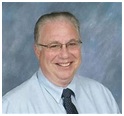 My Tribute to a Dedicated Pastor
My Tribute to a Dedicated Pastor
My colleague and friend in the ministry Pastor Greg Howell passed away of Covid on November 21. For 40 years he was the faithful pastor of the Grace Brethren Church in Goldendale, Washington. His congregation of around 100 was a strong medium-sized church for a community of 3,500. I spoke there once over 20 years ago and I was impressed with the people and the well-appointed facility so conducive to worship. I was also impressed with Pastor Greg’s reputation for good in his community, which held him in high esteem. He also served many of our denominational ministries with dedication and care.
He personified biblical qualities for a good shepherd of the flock entrusted to him by God (1 Timothy 1:7; 1 Peter 5: 1-3). It must have been easy and joyful for his congregation to follow the scripture, “Obey your leaders and submit to their authority… They keep watch over you… Obey them so their work will be a joy and not a burden…” (Hebrews 13:17). Indeed, “When the Chief Shepherd appears, [he] will receive the crown of glory” I am sure (1 Peter 5:4).[/vc_column_text][/vc_column_inner][/vc_row_inner][/vc_column][/vc_row][vc_row css=”.vc_custom_1598373738095{border-radius: 3px !important;}”][vc_column][vc_column_text]And finally once again—from December, 2018
This was the best humor of the season. A Christmas cookie display in a Corona, CA supermarket—picture taken by our daughter. Sorry, Santa!
www.donaldshoemakerministries.com
Contact me at: donaldshoemakerministries@verizon.net
Don has been a member of the clergy in the Long Beach, California area since 1970. He now serves as Pastor Emeritus of Grace Community Church of Seal Beach (where he was senior pastor 1984-2012) and as Senior Chaplain of the Seal Beach Police Department (2001+). He previously was an assistant professor of Biblical Studies at Biola University (1976-84) and chaired the Social Concerns Committee in the Fellowship of Grace Brethren Churches from 1985 to 2019. His graduate work includes a Master of Divinity from Grace Theological Seminary, a Master of Theology from Fuller Theological Seminary with a concentration in Christian ethics, and a Doctor of Ministry from American Baptist Seminary of the West (now Berkeley School of Theology) with a concentration on the Charismatic Movement. His law school studies included a course on the First Amendment. He and his wife Mary have been married for 55 years. They have two children and six grandchildren.[/vc_column_text][/vc_column][/vc_row]


 Why, O Lord, do you stand far off?
Why, O Lord, do you stand far off? This Thanksgiving, Give Thanks that You Live in America!
This Thanksgiving, Give Thanks that You Live in America! [/vc_column_text][vc_column_text]
[/vc_column_text][vc_column_text] Message of the Month
Message of the Month I have honored teachers for decades. When I was an active pastor, I would take time in worship services to honor and pray for teachers when a new school year would get underway.
I have honored teachers for decades. When I was an active pastor, I would take time in worship services to honor and pray for teachers when a new school year would get underway.
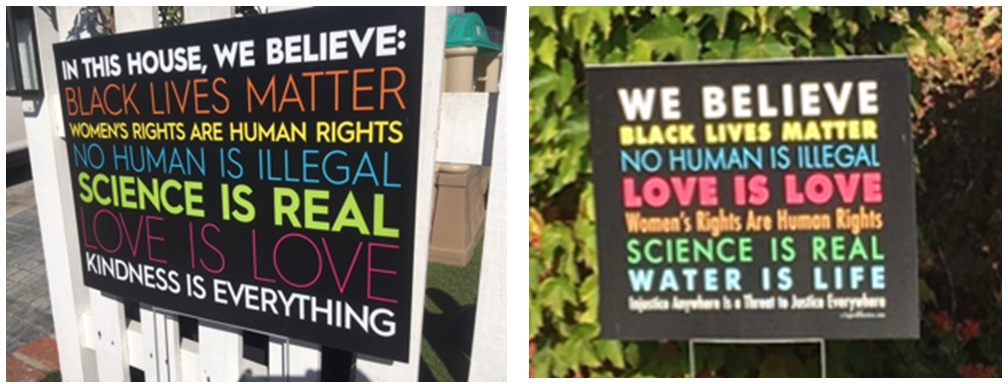

 [/vc_column_text][/vc_column_inner][/vc_row_inner][vc_row_inner][vc_column_inner][vc_column_text]
[/vc_column_text][/vc_column_inner][/vc_row_inner][vc_row_inner][vc_column_inner][vc_column_text]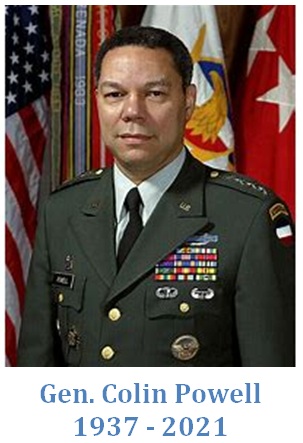 Colin Powell’s 13 Rules
Colin Powell’s 13 Rules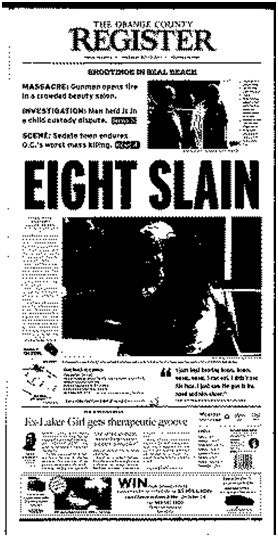 All that changed as the 911 calls flooded in. There was an active shooter at a community salon. Several calls were forwarded from the highway patrol (in those days calls to 911 from cell phones often went to the CHP first). People reported “shots fired.” “With only four dispatchers in the room and one of them working the radio—it was chaos, with a lot of calls and trying to determine what was really going on,” a dispatcher told me.
All that changed as the 911 calls flooded in. There was an active shooter at a community salon. Several calls were forwarded from the highway patrol (in those days calls to 911 from cell phones often went to the CHP first). People reported “shots fired.” “With only four dispatchers in the room and one of them working the radio—it was chaos, with a lot of calls and trying to determine what was really going on,” a dispatcher told me. “Teacher of the year for 2021” by the Los Alamitos Unified School District, which includes Seal Beach.
“Teacher of the year for 2021” by the Los Alamitos Unified School District, which includes Seal Beach. The Women’s Polo Team USA won Gold at the Olympics on August 7 by soundly defeating Spain. They have now won the Gold three times in a row—2012, 2016 and now. Rachel Fattal was also part of the 2016 team.
The Women’s Polo Team USA won Gold at the Olympics on August 7 by soundly defeating Spain. They have now won the Gold three times in a row—2012, 2016 and now. Rachel Fattal was also part of the 2016 team. Caring for the Birdies God Cares for…
Caring for the Birdies God Cares for… Bible Insight – The Priority of
Bible Insight – The Priority of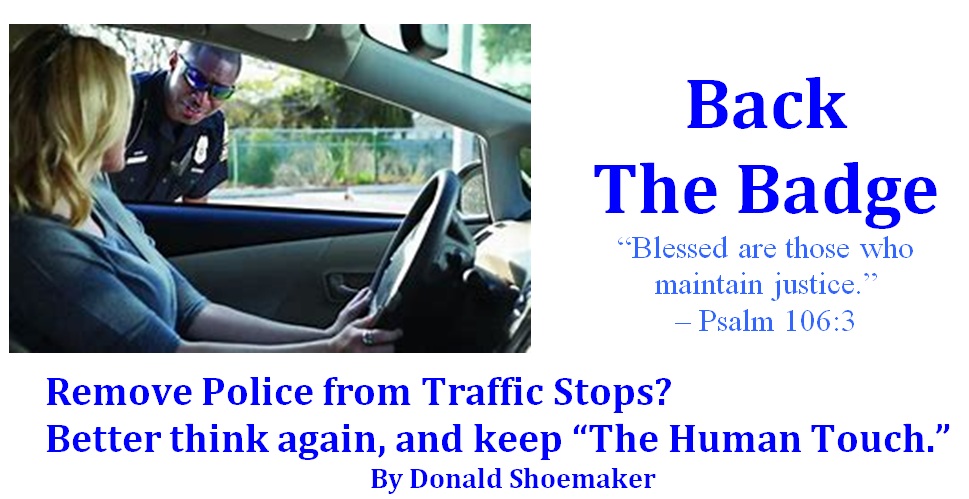 “We must remove police from traffic stops.” So says the leader of an activist group in California.
“We must remove police from traffic stops.” So says the leader of an activist group in California. [/vc_column_text][/vc_column_inner][/vc_row_inner][vc_column_text]
[/vc_column_text][/vc_column_inner][/vc_row_inner][vc_column_text] Under left-wing pressure, the City Council held an emergency meeting with 20 minutes’ notice and voted to remove a monument honoring explorers Meriwether Lewis and William Clark, along with their indispensible guide and translator, an Indian woman named Sacagawea (depicted as a trail guide, not as a subservient woman). Lewis, born in the county, was a local hero.
Under left-wing pressure, the City Council held an emergency meeting with 20 minutes’ notice and voted to remove a monument honoring explorers Meriwether Lewis and William Clark, along with their indispensible guide and translator, an Indian woman named Sacagawea (depicted as a trail guide, not as a subservient woman). Lewis, born in the county, was a local hero. Now listen, you who say, “Today or tomorrow we will go to this or that city, spend a year there, carry on business and make money.” Why, you do not even know what will happen tomorrow. What is your life? You are a mist that appears for a little while and then vanishes.
Now listen, you who say, “Today or tomorrow we will go to this or that city, spend a year there, carry on business and make money.” Why, you do not even know what will happen tomorrow. What is your life? You are a mist that appears for a little while and then vanishes. We hold these truths to be self-evident, that all men are created equal, that they are endowed by their Creator with certain unalienable Rights, that among these are Life, Liberty and the pursuit of Happiness. – That to secure these rights, Governments are instituted among Men, deriving their just powers from the consent of the governed…
We hold these truths to be self-evident, that all men are created equal, that they are endowed by their Creator with certain unalienable Rights, that among these are Life, Liberty and the pursuit of Happiness. – That to secure these rights, Governments are instituted among Men, deriving their just powers from the consent of the governed… [/vc_column_text][/vc_column_inner][/vc_row_inner][vc_row_inner][vc_column_inner][vc_column_text]
[/vc_column_text][/vc_column_inner][/vc_row_inner][vc_row_inner][vc_column_inner][vc_column_text] On the American Revolution and Slavery
On the American Revolution and Slavery What Are the Most Empty Words We Use?
What Are the Most Empty Words We Use? Our Little 2021 Contribution to Creation
Our Little 2021 Contribution to Creation Touch is more than one of the five senses. When welcomed, it is a vital part of human interaction. Unwelcomed, it is an intrusion or worse.
Touch is more than one of the five senses. When welcomed, it is a vital part of human interaction. Unwelcomed, it is an intrusion or worse. 107-year-old Viola Fletcher, the oldest living survivor of the massacre testified at a recent congressional hearing on “The Centennial of the Tulsa-Greenwood Race Massacre.”
107-year-old Viola Fletcher, the oldest living survivor of the massacre testified at a recent congressional hearing on “The Centennial of the Tulsa-Greenwood Race Massacre.” Jesus loves the little children,
Jesus loves the little children, “Broken Windows” was the metaphor for the smaller deterioration—vandalism, public drinking, “fare-hopping,” disorderly conduct, petty thefts, criminal trespass, graffiti, letting trash accumulate, poor maintenance of property, and more.
“Broken Windows” was the metaphor for the smaller deterioration—vandalism, public drinking, “fare-hopping,” disorderly conduct, petty thefts, criminal trespass, graffiti, letting trash accumulate, poor maintenance of property, and more. May your father and mother rejoice;
May your father and mother rejoice;
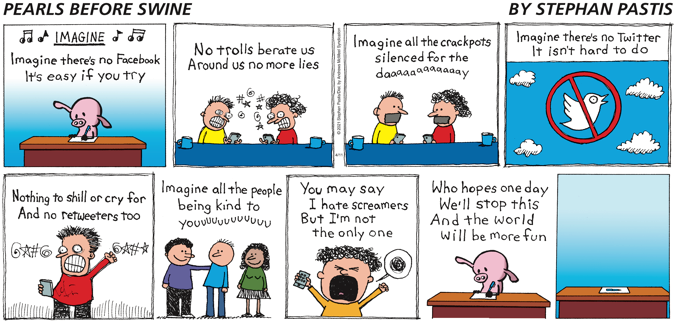
 —Jason D. Hill, Professor of Philosophy at DePaul University. Dr. Hill emigrated from Jamaica in 1985 and became an American citizen. He is the author of What Do White Americans Owe Black People (Racial Justice in the age of post-oppression) and Civil Disobedience and the Politics of Identity.
—Jason D. Hill, Professor of Philosophy at DePaul University. Dr. Hill emigrated from Jamaica in 1985 and became an American citizen. He is the author of What Do White Americans Owe Black People (Racial Justice in the age of post-oppression) and Civil Disobedience and the Politics of Identity. Our Easter Hope – Resurrection to New Life
Our Easter Hope – Resurrection to New Life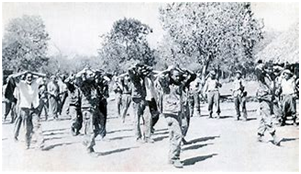 Victory was not to be. Within three days the invaders were defeated and most were captured. Kennedy had cancelled plans for air cover, dooming the operation.
Victory was not to be. Within three days the invaders were defeated and most were captured. Kennedy had cancelled plans for air cover, dooming the operation.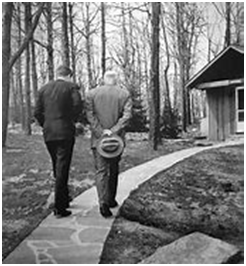 Kennedy took full responsibility for the failure. Especially poignant, two days after the collapse of the invasion Kennedy invited Dwight Eisenhower to Camp David to get, as Kennedy later told the press, “the benefit of his thoughts and experience.”
Kennedy took full responsibility for the failure. Especially poignant, two days after the collapse of the invasion Kennedy invited Dwight Eisenhower to Camp David to get, as Kennedy later told the press, “the benefit of his thoughts and experience.”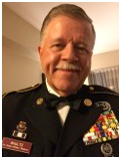 Why the Spike in Crime?
Why the Spike in Crime?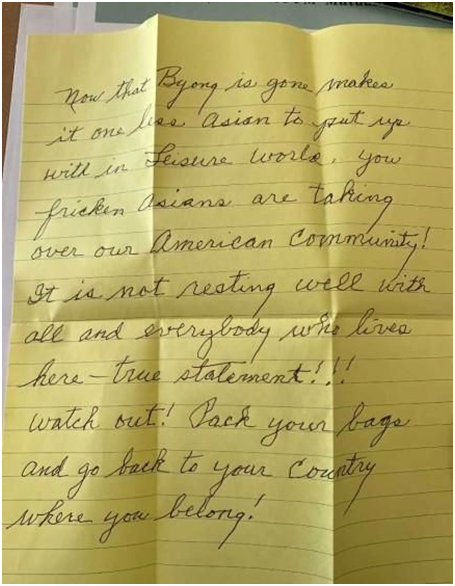 The community has come together in reaffirming this resident’s right to live in
The community has come together in reaffirming this resident’s right to live in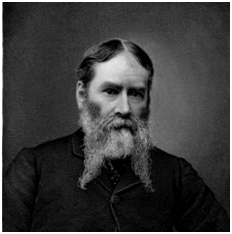
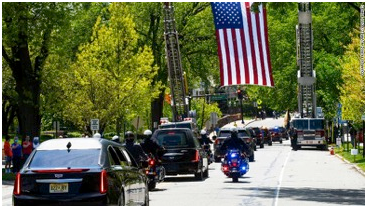 Back The Badge
Back The Badge Captain Jonathan Parnell of the Detroit Police Department was the first to die of COVID on March 24. The last, on December 31, was Officer Troy Adkins, U.S. Department of Homeland Security – Customs and Border Protection. In between, 208 LODD were from COVID-19. A distant second was gunfire (50), followed by automobile crashes (20) and vehicular assault (13). *
Captain Jonathan Parnell of the Detroit Police Department was the first to die of COVID on March 24. The last, on December 31, was Officer Troy Adkins, U.S. Department of Homeland Security – Customs and Border Protection. In between, 208 LODD were from COVID-19. A distant second was gunfire (50), followed by automobile crashes (20) and vehicular assault (13). *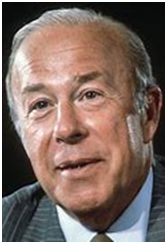 George Shultz, who died February 6 at the age of 100, was secretary of state to President Reagan, among other roles. He was most instrumental in ending the Cold War.
George Shultz, who died February 6 at the age of 100, was secretary of state to President Reagan, among other roles. He was most instrumental in ending the Cold War.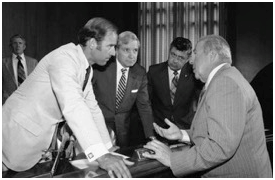 eliminate these weapons in order to preserve a sane and peaceful world. We pray for your help as we work toward this goal.”
eliminate these weapons in order to preserve a sane and peaceful world. We pray for your help as we work toward this goal.”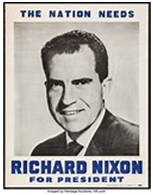 Richard Nixon and the Election of 1960
Richard Nixon and the Election of 1960 I’m also impressed with how Daniel earned the right to be heard, even to be able to tell a proud and ruthless king what he didn’t want to hear. After Daniel told the king the dream’s warning of his impending insanity, Daniel held out a word of hope: “Therefore, O king, be pleased to accept my advice: Renounce your sins by doing what is right, and your wickedness by being kind to the oppressed. It may be that then your prosperity will continue” (4:27).
I’m also impressed with how Daniel earned the right to be heard, even to be able to tell a proud and ruthless king what he didn’t want to hear. After Daniel told the king the dream’s warning of his impending insanity, Daniel held out a word of hope: “Therefore, O king, be pleased to accept my advice: Renounce your sins by doing what is right, and your wickedness by being kind to the oppressed. It may be that then your prosperity will continue” (4:27). Nehemiah was greatly distressed when he heard that the walls of far-away Jerusalem lay in ruins—the place that was once King David’s royal city. This was around 444 BC, a century after the end of the Babylonian Captivity. With permission and provisions from the king, Nehemiah travelled to Jerusalem, rebuilt the walls, restored a sense of community in the city, protected the people from surrounding enemies, and revitalized worship and obedience to God.
Nehemiah was greatly distressed when he heard that the walls of far-away Jerusalem lay in ruins—the place that was once King David’s royal city. This was around 444 BC, a century after the end of the Babylonian Captivity. With permission and provisions from the king, Nehemiah travelled to Jerusalem, rebuilt the walls, restored a sense of community in the city, protected the people from surrounding enemies, and revitalized worship and obedience to God.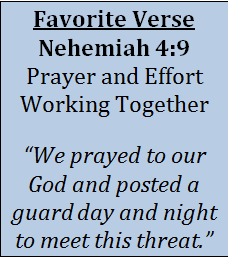 Moreover, Nehemiah did not eat the food allotted to him as governor, thus relieving the tax burden placed on the people by earlier governors. “Out of reverence for God I did not act like that” (5:15). What Nehemiah did do was to invite people to eat at his table—150 of them at a time! And eat well they did—oxen, sheep and poultry with an abundant supply of wine. But Nehemiah refused to tax the people for his culinary enjoyments.
Moreover, Nehemiah did not eat the food allotted to him as governor, thus relieving the tax burden placed on the people by earlier governors. “Out of reverence for God I did not act like that” (5:15). What Nehemiah did do was to invite people to eat at his table—150 of them at a time! And eat well they did—oxen, sheep and poultry with an abundant supply of wine. But Nehemiah refused to tax the people for his culinary enjoyments.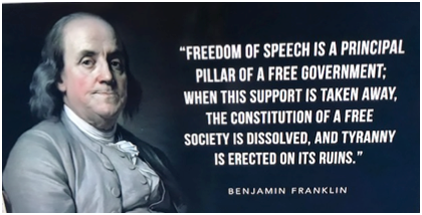 The freedoms of religion, speech, the press, peaceful assembly and petition of government are all guaranteed in the First Amendment. I see these freedoms standing or falling together.
The freedoms of religion, speech, the press, peaceful assembly and petition of government are all guaranteed in the First Amendment. I see these freedoms standing or falling together.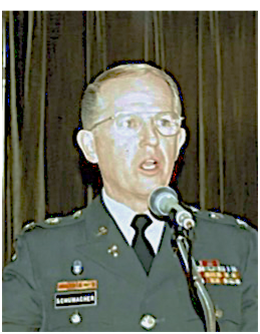 “A Soldier of God” –
“A Soldier of God” –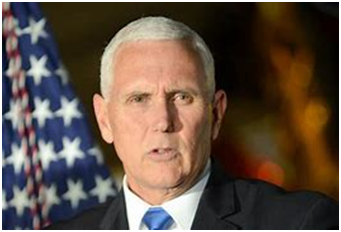 A Man of Honor and Courage
A Man of Honor and Courage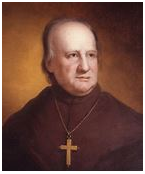 A Timely Prayer for our Country—
A Timely Prayer for our Country— When we moved to California in 1970 and bought a home, we noticed the previous owner left behind an old copy of LIFE magazine—from 1965—titled “Drama of Life Before Birth.” For you younger ones, LIFE magazine was probably the premier periodical of that day. That issue of LIFE would change the focus of my ministry!
When we moved to California in 1970 and bought a home, we noticed the previous owner left behind an old copy of LIFE magazine—from 1965—titled “Drama of Life Before Birth.” For you younger ones, LIFE magazine was probably the premier periodical of that day. That issue of LIFE would change the focus of my ministry! Good News from Grace
Good News from Grace I continue to marvel at the loyalty of these people as evidenced by their giving in the midst of this time of economic, social and medical difficulty:
I continue to marvel at the loyalty of these people as evidenced by their giving in the midst of this time of economic, social and medical difficulty: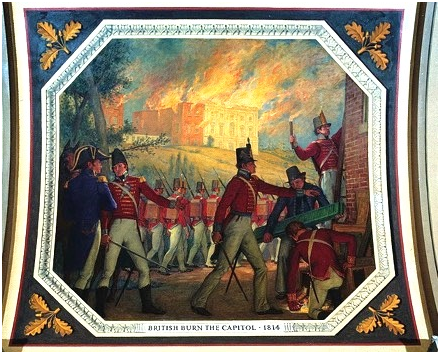 Losing “The Peoples’ Capitol”
Losing “The Peoples’ Capitol”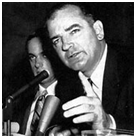 Beware “The New McCarthyism”
Beware “The New McCarthyism” “Mobocracy” is authoritarian, unchristian, and contrary to American ideals, whether it is by leftist extremists or right-wing extremists.
“Mobocracy” is authoritarian, unchristian, and contrary to American ideals, whether it is by leftist extremists or right-wing extremists.